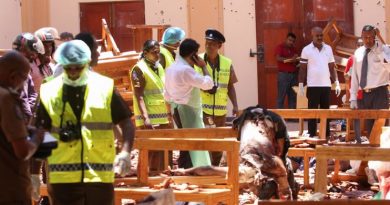Challenges and Progress: Ebola in Uganda
Abigale Giordano
Digital Editor
On January 30, a 32-year-old male nurse in Uganda died from the Ebola virus, marking the first recorded fatality of the disease since the nation’s last confirmed outbreak of the disease ended in 2023. According to The Associated Press, the victim was an employee of Mulago Hospital, the main referral facility in Kampala, Uganda’s capital. At least 44 contacts of the victim have been identified, The Associated Press reports via Uganda’s Ministry of Health.
With the number of cases on the rise, the World Health Organization (WHO) has partnered with Uganda’s Ministry of Health and other partners to launch a groundbreaking Ebola vaccination trial in Uganda. A global first, the clinical efficiency trial targets the Sudan strain, which the nurse acquired, the Centers for Disease Control and Prevention (CDC) confirmed.
The trial was deployed at an unprecedented speed for a randomized vaccine trial and is the first trial to assess the clinical efficacy of a vaccine against Ebola Sudan viral disease, the WHO reports. IAVI, the provider of the vaccine, conducted trials for safety and immunogenicity. The Sudan strain has a 40 percent fatality rate, according to Al Jazeera. “This is a critical achievement towards better pandemic preparedness, and saving lives when outbreaks occur,” says Dr. Tedros Adhanom Ghebreyesus, Director-General of the WHO.
The United Nations (UN) reports that the WHO has allocated $1 million from its Contingency Fund for Emergencies to accelerate early action against the virus. Medical supplies, such as personal protective equipment, are being readied to deliver from WHO’s Emergency Response Hub in Nairobi to help healthcare workers and researchers fight the deadly and infectious hemorrhagic fever, which is transmitted through contact with bodily fluids and tissue, the UN details. As Ebola is a highly infectious disease, patients must be isolated when treated, and medical workers handling such patients are required to wear full personal protective equipment, adhere to strict hygiene protocols, and handle dead bodies safely to avoid infection.
Reuters reports that this is Uganda’s ninth outbreak of the Ebola virus since 2000—the second most recent outbreak beginning in 2022, an epidemic which lasted four months and killed 55 people, according to Al Jazeera. With the current Ebola outbreak occurring shortly after the last, global awareness of the disease has increased.
The global community has also recognized the challenges Ebola poses for the continent of Africa, due to traditional beliefs and conspiracy theories that often impede Ebola treatment and control. Al Jazeera highlights that the latest victim visited a traditional healer, rather than proper healthcare. Additionally, his relatives reportedly attempted to exhume his body to rebury it in accordance with their faith, posing serious risks for themselves as bodies can still be infectious for a period after death. France 24 reports that the confirmation of Ebola in Uganda is the latest in a trend of outbreaks of viral hemorrhagic fevers in the east African region. Tanzania declared an outbreak of Marburg, an Ebola-like disease, earlier in January and Rwanda announced its own Marburg outbreak in December. At least two people of the Kagera region in Tanzania have died due to the virus.
Health officials fear the U.S. shutdown of the U.S. Agency for International Development (USAID) missions may have catastrophic results as the epidemic spreads, according to CBS News. Over a dozen Americans in Uganda are among those so far known to have been exposed to the virus. The outbreak coincides with the Trump administration’s pause in foreign aid, creating uncertainty among health nonprofits, now facing unpaid debts and a freeze on much of their U.S. funding. Dr. Atul Gawande, a former USAID global director, told CBS News that “What we’re talking about are disaster relief workers, we’re talking about health workers and people who are doing good and protecting America around the world.”
The pause has led to understaffed contact tracing and screening of departing international travelers in Uganda. In contrast, during the 2022 outbreak of Sudan virus in Uganda, the United States ramped up screening and preparedness for the virus here and sent staff and resources to aid Uganda’s efforts to contain its spread. As the next few weeks unfold and the virus spreads, it is important to be cognizant of global health.
Image courtesy of Getty Images.

